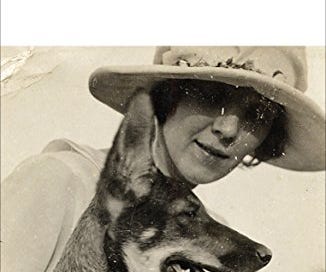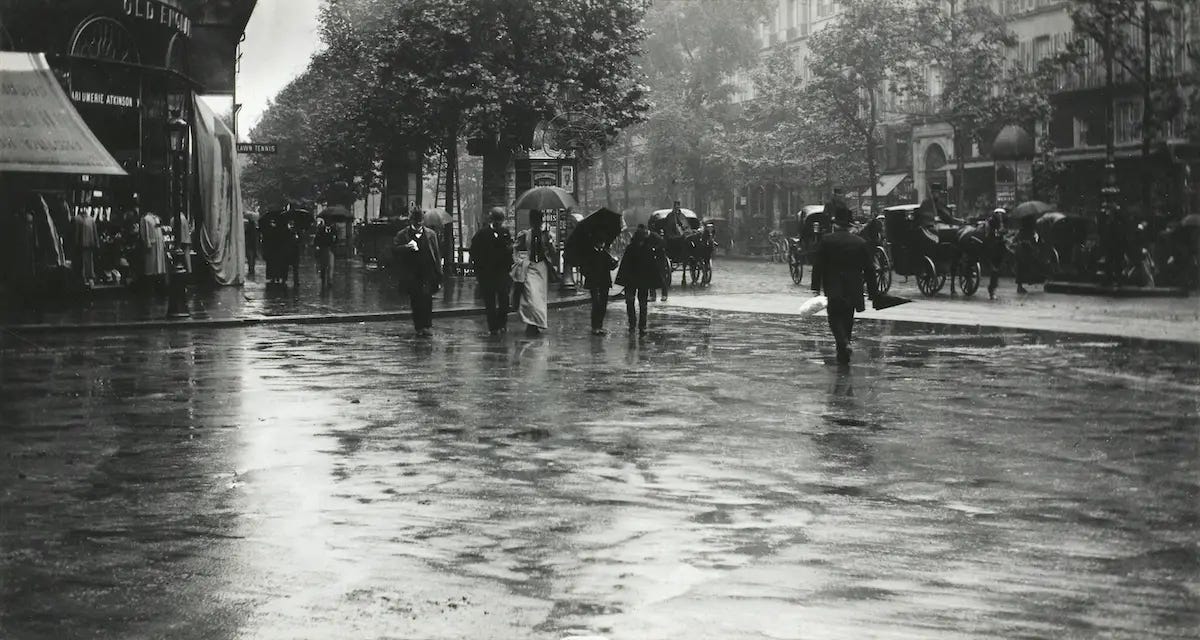Following on from last week’s March roundup post, the reader poll voted overwhelmingly for a piece on the short stories of Jean Rhys. So here it is! I hope you enjoy reading, and if you’ve found your way here via the Substack reader, please consider subscribing for more literary conversations : )
Jean Rhys is arguably better known as a novelist, finding fame with her last novel published in 1966 Wide Sargasso Sea. The novel brought Rhys critical acclaim late in life, having remained unpublished for over 20 years, and brought back into focus her previously published novels, often portraying life in Europe during the 1920’s and ‘30’s.
First discovering Rhys as many have via Wide Sargasso Sea, written as a prequel to Charlotte Bronte’s Jane Eyre and featuring the early life of Bertha, the ‘mad woman in the attic’, I then delved headlong into her Paris novels, discovering her unique voice and pithy writing style, finally discovering her short stories which contain similar themes.
Born Ella Gwendolen Rees Williams in 1890 in Dominica to a Scottish/Creole mother and Welsh father, Rhys was sent in childhood to an English boarding school following the decline in fortune of the family business. Finding England to be a much greyer, more depressing place than she’d imagined, Rhys often felt an outsider, bullied for her Creole accent, which she staunchly refused to tone down. She endured a kind of reverse exile and left school as soon as possible to tour as a chorus girl around the North of England.
Her stories, often portraying the disenfranchisement of women living precarious lives on the edges of society, are said to mirror her own somewhat chaotic and unpredictable life. Bad choices in men (she was married three times, two of her husband’s spending time in prison) and the death of her first child at a few weeks old (something she often felt was due to her own neglect) as well as long periods of separation from her second child also led to her struggling to work and becoming an alcoholic. This resulted in a brief confinement in a women’s prison for psychiatric evaluation, an experience she heavily leaned upon in her perfectly structured story ‘Let them call it jazz’.
Many commentators have chosen to portray Rhys’s life and her female fictional characters as one and the same person – claiming there to be one ‘Rhys Woman’ recycled through different texts – but this is not entirely the case, and takes away from the skill and complexity of Rhys’s writing.
Her literary style was highly praised on publication of her first collection and the four novels which followed. Rhys’s debut collection, The Left Bank featured what would become her trademark portrayal of bohemian Paris, often women of little means, reliant on male patronage. She went on to publish four accomplished novels still working on these themes, but in a cruel twist of irony, the better she got, the less she was read.
She disappeared into obscurity for over 20 years, living as something of a recluse in a Devonshire bungalow, until stories began appearing in the early 1960’s in The London Magazine, followed by Wide Sargasso Sea, which brought her acclaim and a degree of financial security at the age of 76.
The publication of this novel, appearing as it did in the 1960’s, appealed to the cultural zeitgeist questioning issues such as the exploitation of women, race, and colonialism. It also brought the issues of West Indian immigration to Britain into the public consciousness, and brought attention to Rhys as a writer.
Two more story collections came before her death in 1979, containing arguably some of the best short stories by a British writer in the last century.
The Left Bank was brought to fruition with the support of Rhys’s literary mentor, the writer Ford Madox Ford, whom had himself been mentored by Joseph Conrad. Ford saw such potential in her writing that he moved her into the spare bedroom of the home he shared with his wife, the artist Stella Bowen. Predictably, Ford’s intentions were not entirely honourable towards Rhys, and an affair between the pair, reportedly with the awareness of Bowen, took place. She later wrote about this affair in her first novel, Quartet.
Keep reading with a 7-day free trial
Subscribe to A Narrative Of Their Own to keep reading this post and get 7 days of free access to the full post archives.





